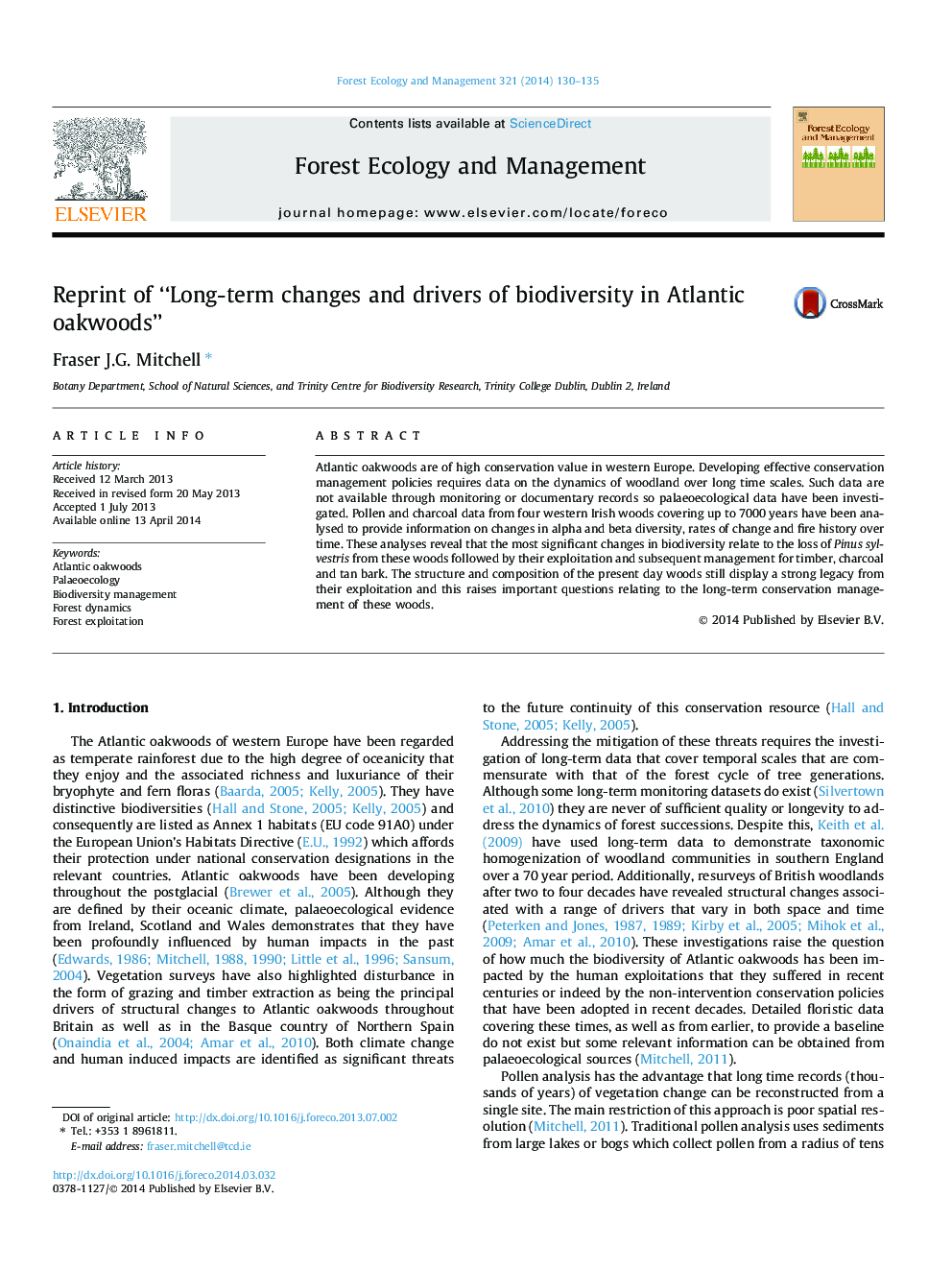| Article ID | Journal | Published Year | Pages | File Type |
|---|---|---|---|---|
| 86480 | Forest Ecology and Management | 2014 | 6 Pages |
•Palaeoecology is used to generate long-term data on woodland biodiversity.•Atlantic oakwood biodiversity has been impacted by the loss of Pinus sylvestris and exploitation.•The structure and biodiversity of current Atlantic oakwoods is influenced by a legacy from exploitation.•Future conservation management of Atlantic oakwoods needs to take account of this legacy.
Atlantic oakwoods are of high conservation value in western Europe. Developing effective conservation management policies requires data on the dynamics of woodland over long time scales. Such data are not available through monitoring or documentary records so palaeoecological data have been investigated. Pollen and charcoal data from four western Irish woods covering up to 7000 years have been analysed to provide information on changes in alpha and beta diversity, rates of change and fire history over time. These analyses reveal that the most significant changes in biodiversity relate to the loss of Pinus sylvestris from these woods followed by their exploitation and subsequent management for timber, charcoal and tan bark. The structure and composition of the present day woods still display a strong legacy from their exploitation and this raises important questions relating to the long-term conservation management of these woods.
